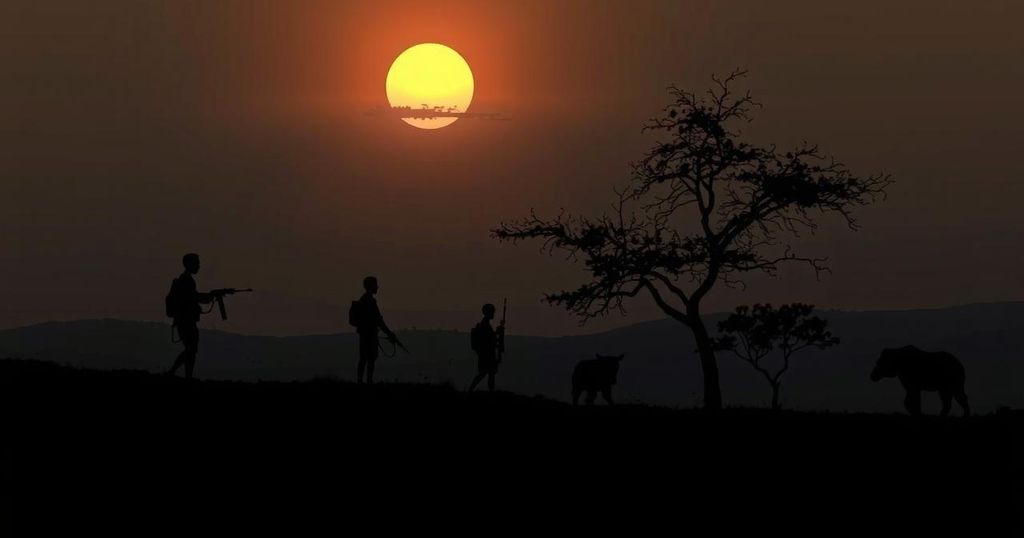War-torn Sudan: A Nation in Agony
Summary
The Sudan Civil War encompasses a deep-seated, multifaceted conflict originating from historical divisions marked by ethnic, religious, and political grievances. Following significant events such as the ousting of Omar al-Bashir and the subsequent military coup, the nation faces a humanitarian crisis aggravated by political instability, corruption, and economic mismanagement. Sustainable solutions necessitate a multifaceted approach involving inclusive negotiations, power-sharing agreements, economic reforms, and reconciliation efforts aimed at restoring peace and stability in Sudan.
The protracted Sudan Civil War represents one of the most intricate and harrowing crises in Africa. This multifaceted conflict not only disrupts the social and political fabrics of Sudan but also extends its detrimental influence across the region. Rooted in a web of ethnic, religious, political, and economic grievances, the war has unleashed a torrent of suffering on the Sudanese populace, leading to millions of displacements, fatalities, and persistent cycles of poverty and hunger. A comprehensive understanding of the conflict’s origins, its current developments, and the exploration of viable resolutions is imperative for the advancement of sustainable peace in this beleaguered nation. Historically, the origins of the Sudanese Civil War can be traced back to the colonial era, culminating in the deep-rooted divisions that surfaced upon Sudan’s independence from British and Egyptian control in 1956. The stark contrast between the predominantly Arab and Muslim north and the largely African, Christian, or animist south aggravated political disenfranchisement and economic disparities, leaving southern populations marginalized. The First Sudanese Civil War (1955–1972) broke out as southern factions sought independence from the northern-dominated administration, resulting in extensive loss of life and widespread dislocation. Though the 1972 Addis Ababa Agreement provided temporary respite by permitting limited autonomy for the south, it did not address the underlying tensions, which erupted again in the Second Civil War (1983–2005) when President Jaafar Nimeiry retracted commitments to the agreement, imposing Sharia law throughout the nation. The subsequent rise of the Sudan People’s Liberation Army (SPLA) marked a significant military and political shift, leading to even more catastrophic consequences than witnessed in the first war. The culmination of this conflict resulted in the 2005 Comprehensive Peace Agreement, paving the way for South Sudan’s independence in 2011, yet further complicating existing divisions within Sudan and sparking additional conflicts, notably in Darfur. The current state of the Sudanese Civil War has evolved dramatically since the ousting of long-time dictator Omar al-Bashir in 2019. Following his expulsion, a transitional government comprising both civilian and military leaders was established, aiming to transition the country towards democracy. However, this coalition rapidly deteriorated, culminating in a military coup in October 2021 led by General Abdel Fattah al-Burhan. This has reignited mass protests advocating for the restoration of civilian governance, met with brutal reprisals from security forces. Amidst this turmoil, various armed factions have resurfaced, leading to violence especially in regions like Darfur, Blue Nile, and South Kordofan. Compounding these issues is an alarming humanitarian crisis: Sudan’s economy, already ravaged by corruption and mismanagement, is in freefall, with soaring inflation and food shortages impacting millions. The United Nations has reported that more than 9 million individuals face dire food insecurity, with conditions worsening by the day. The enduring conflict finds its roots in several critical factors: ethnic and regional divisions whereby the central government historically marginalizes diverse ethnicities; political instability marked by coups and authoritarian governance undermining stability; economic mismanagement yielding pervasive inequality; and international dynamics involving regional and global powers complicating the resolution process. Despite these complexities, pathways to peace are conceivable. Solutions must encompass inclusive peace negotiations that involve all pertinent parties, a robust power-sharing framework enhancing accountability, comprehensive economic reforms aimed at tackling inequality and fostering development, and a reconciliation process addressing historical grievances and human rights violations. Empowering local governance structures can further enable inclusive decision-making and foster stability. In summary, the Sudan Civil War embodies a multilayered predicament with historical roots. The potential for progress hinges upon addressing conflict drivers, engaging all stakeholders in sincere negotiation efforts, and committing to long-term economic and governmental reforms. Achieving lasting peace will necessitate sustained cooperation and effort from both Sudanese leadership and the international community.
The Sudan Civil War represents a complex series of conflicts rooted in Sudan’s colonial past and the resultant sociopolitical and ethnic divides that emerged following independence in 1956. This conflict is fueled largely by a north-south dichotomy, where discrimination based on religious and ethnic identities has led to decades of violence and instability. Efforts to establish lasting peace, particularly after the secession of South Sudan in 2011, have continued to be hindered by political unrest and humanitarian crises that plague the nation.
The Sudan Civil War, with its intricate history and current challenges, illustrates the dire need for comprehensive strategies to address the root causes of conflict. Engaging all relevant stakeholders in meaningful negotiations, establishing effective governance structures, instituting economic reforms, and facilitating reconciliation will be vital in paving the way towards stability and peace in Sudan. Such comprehensive approaches must involve the commitment and collaboration of both Sudanese leaders and the broader international community in order to foster a prosperous future for the nation.
Original Source: moderndiplomacy.eu







Post Comment